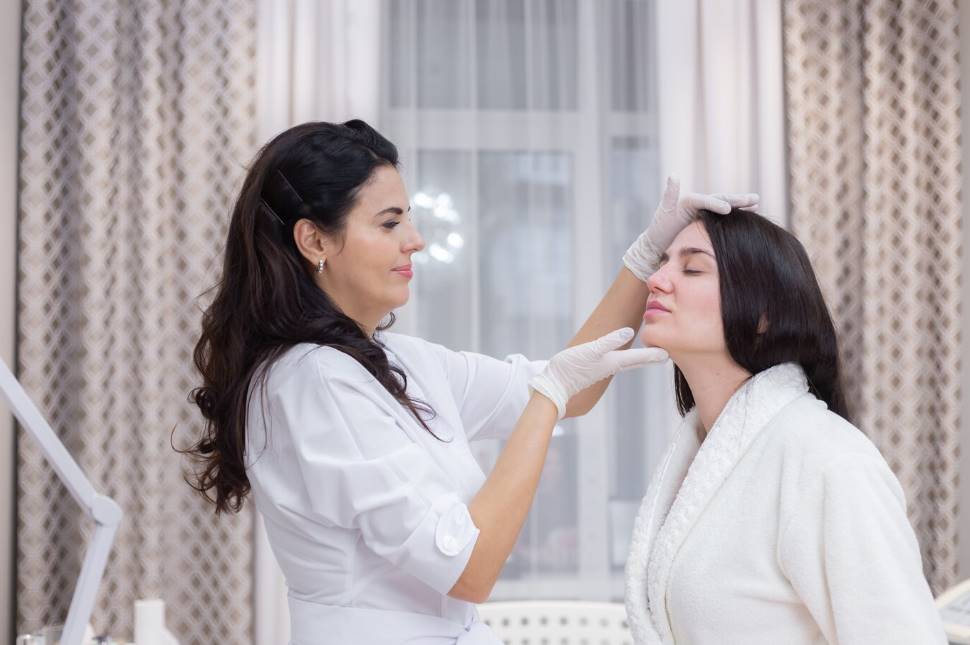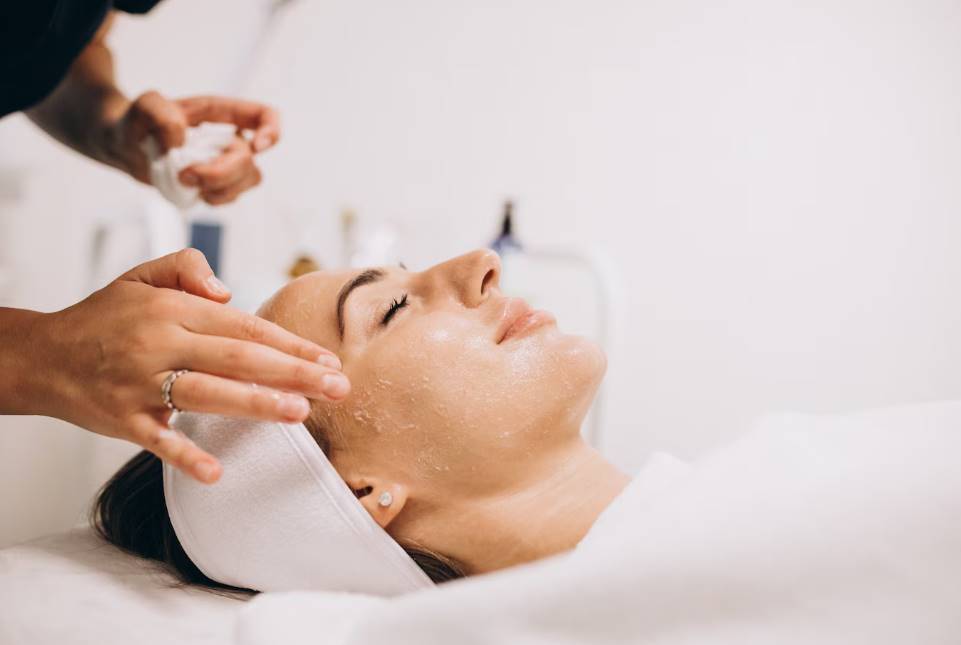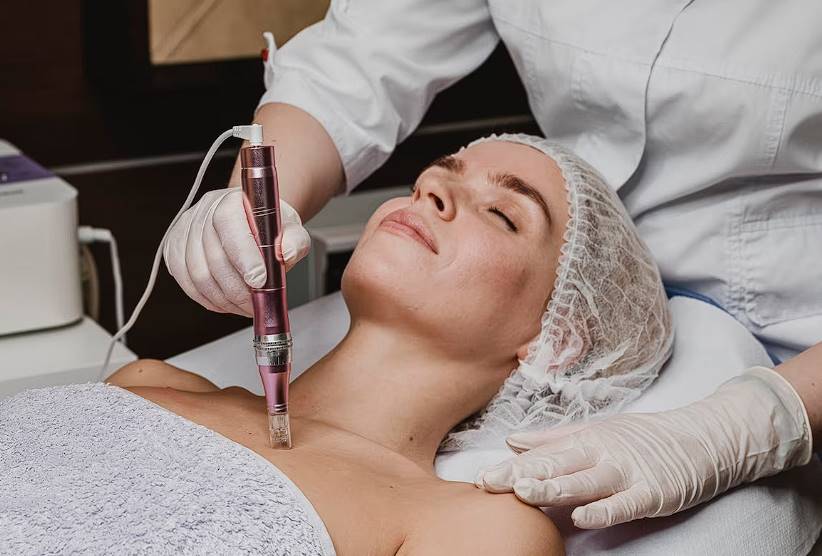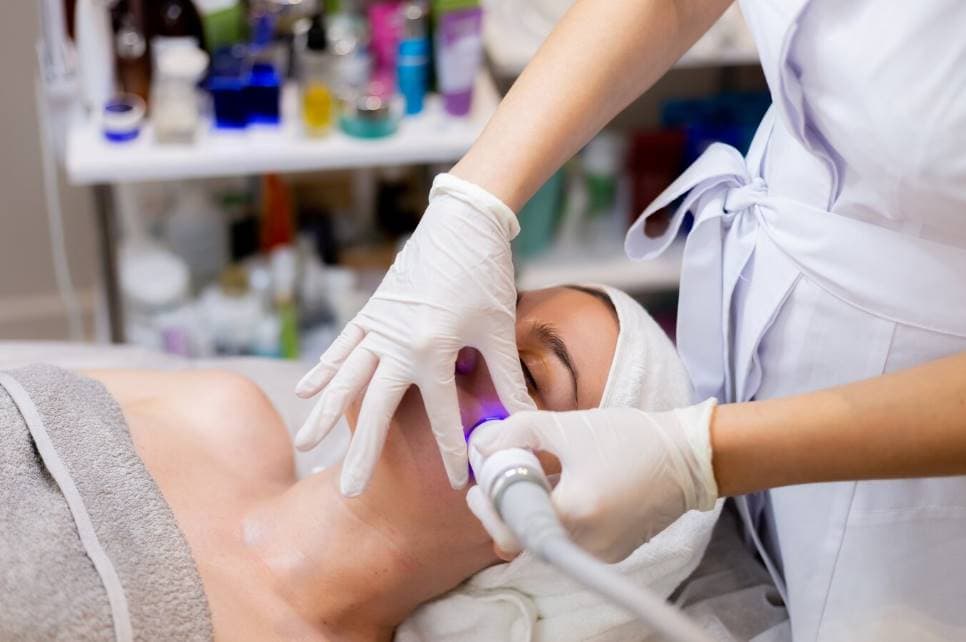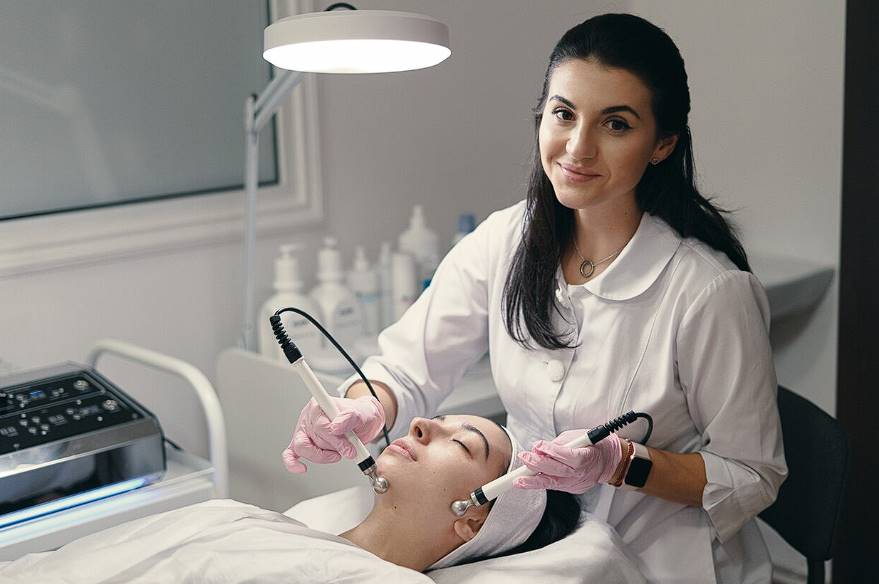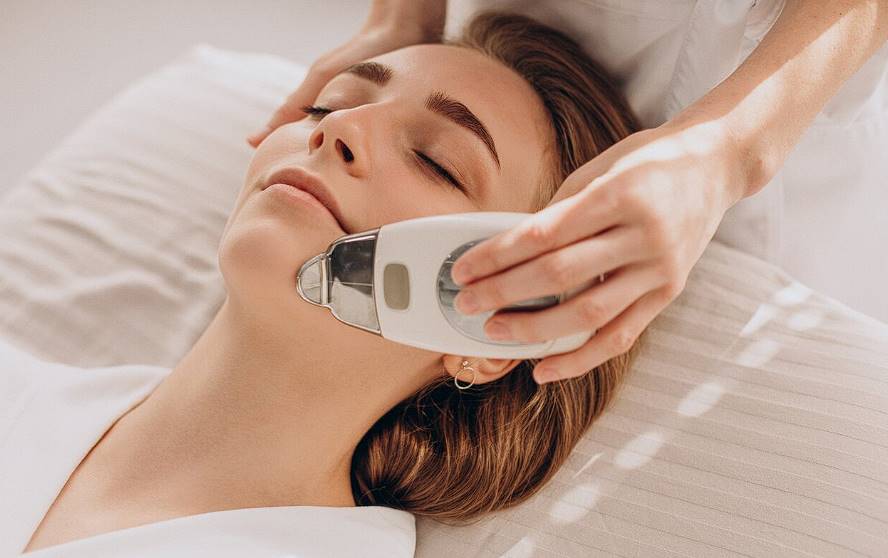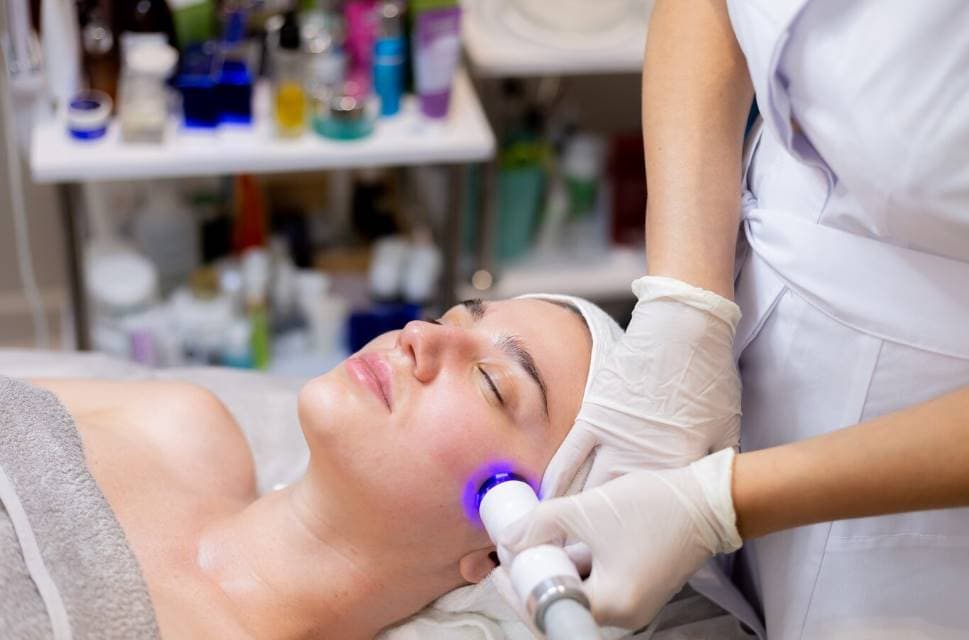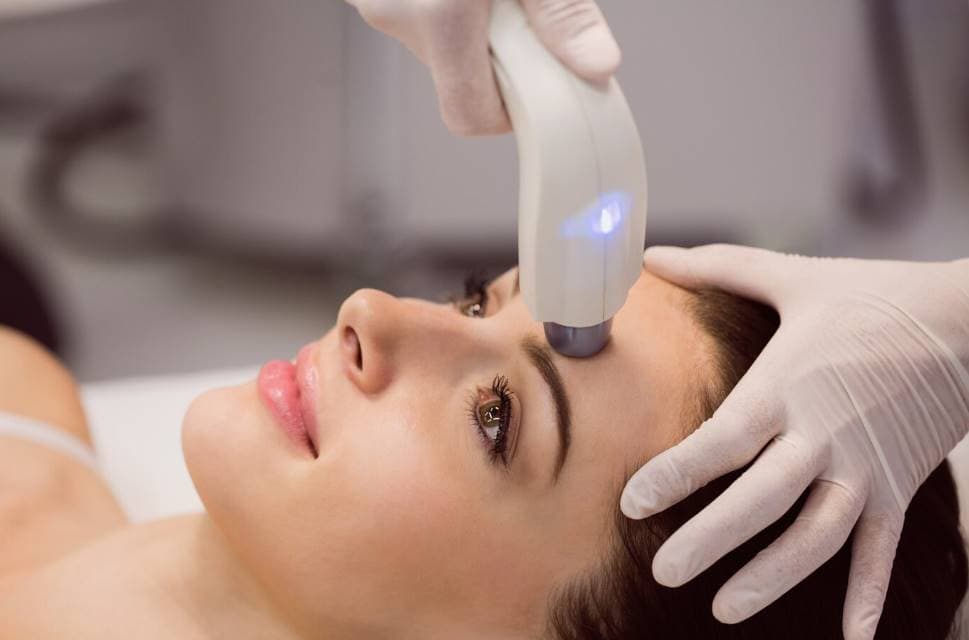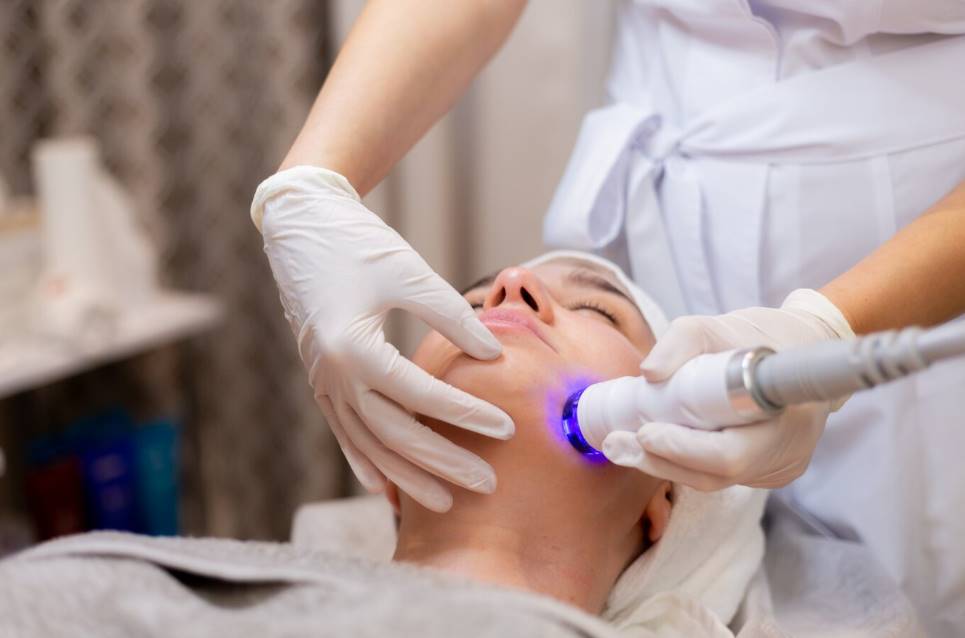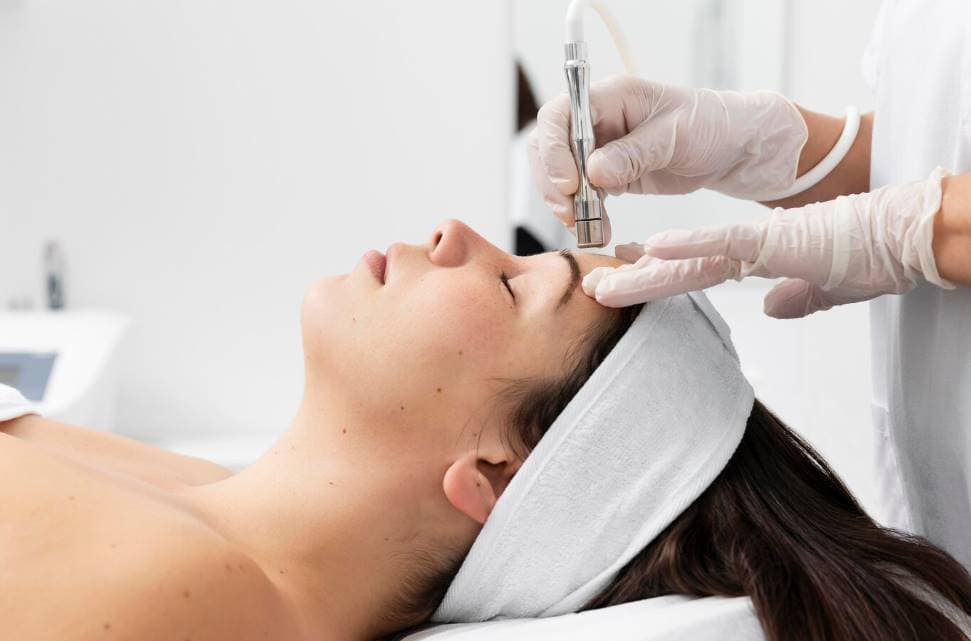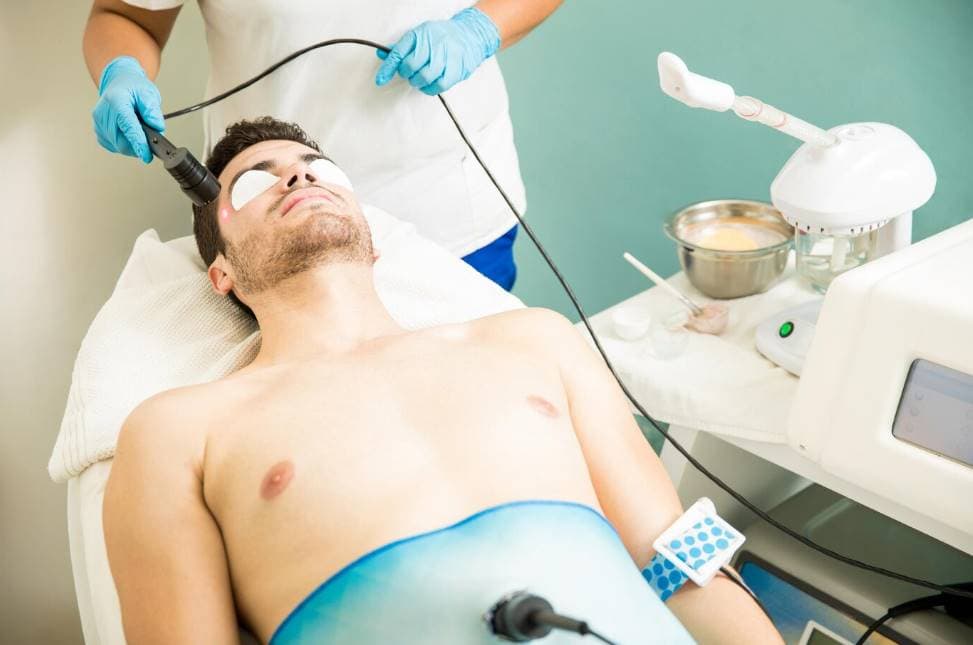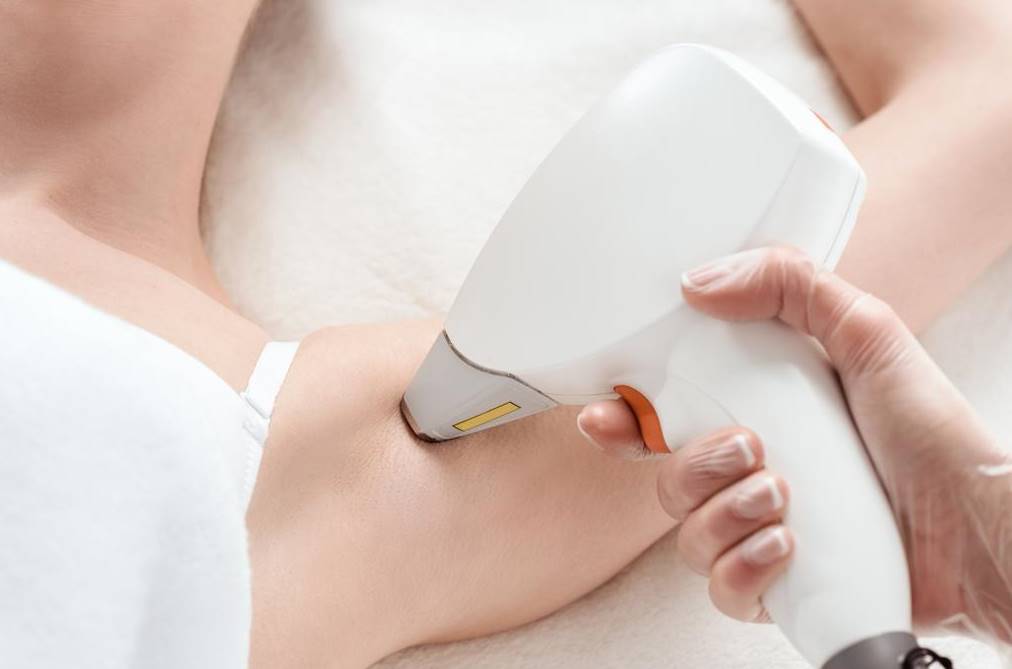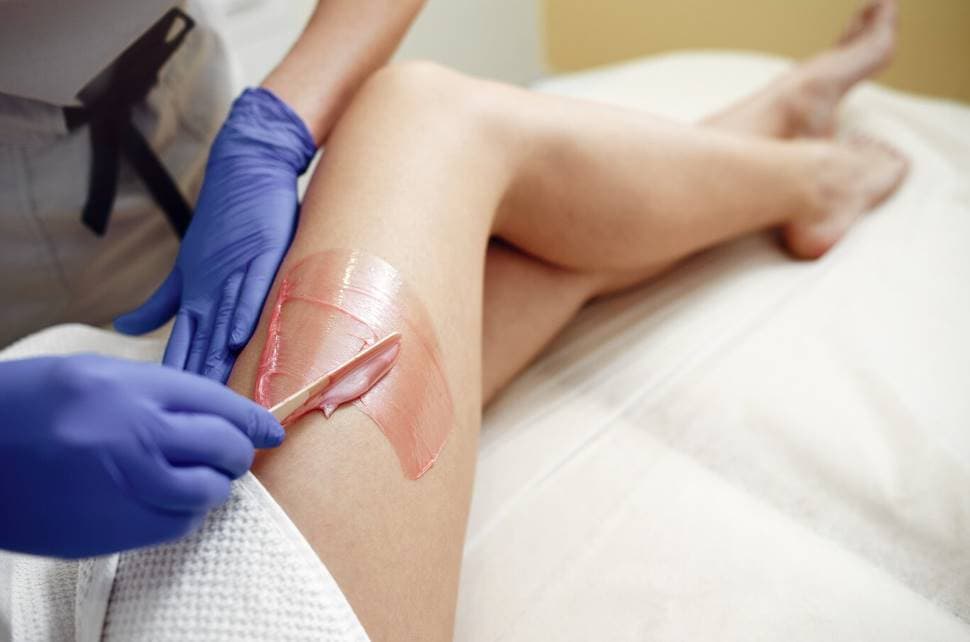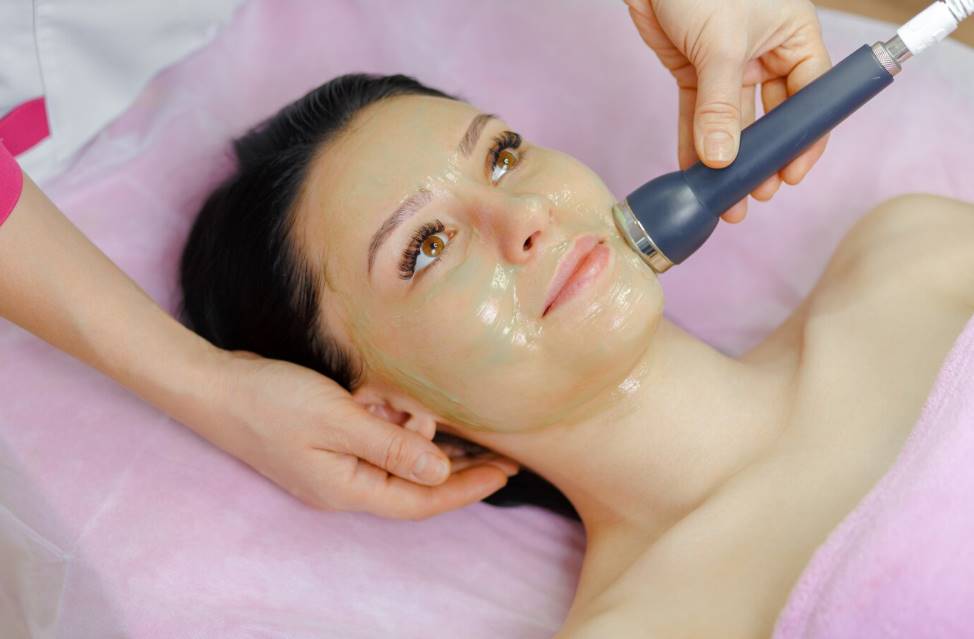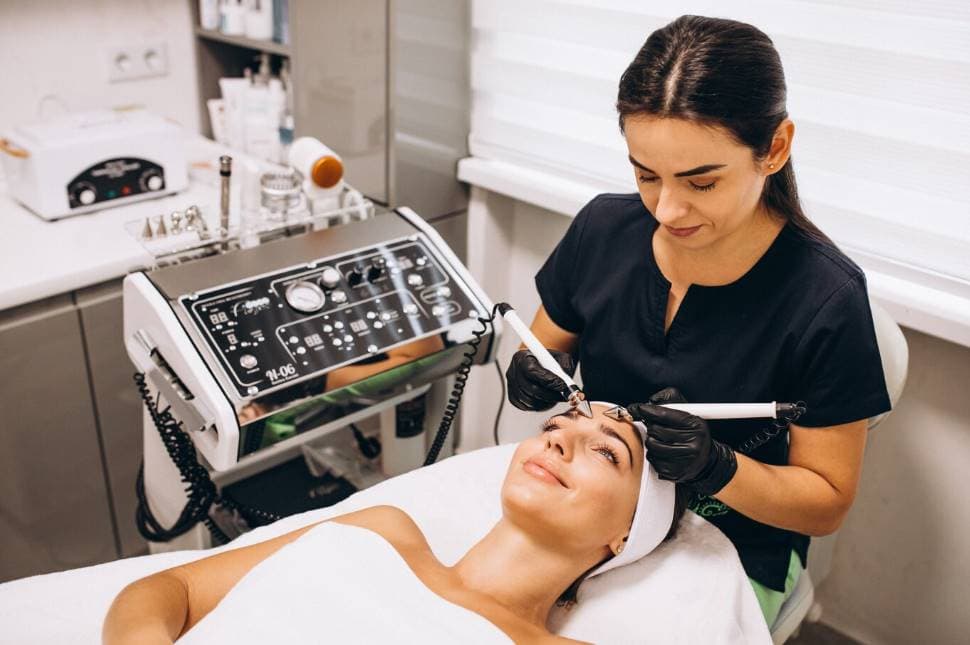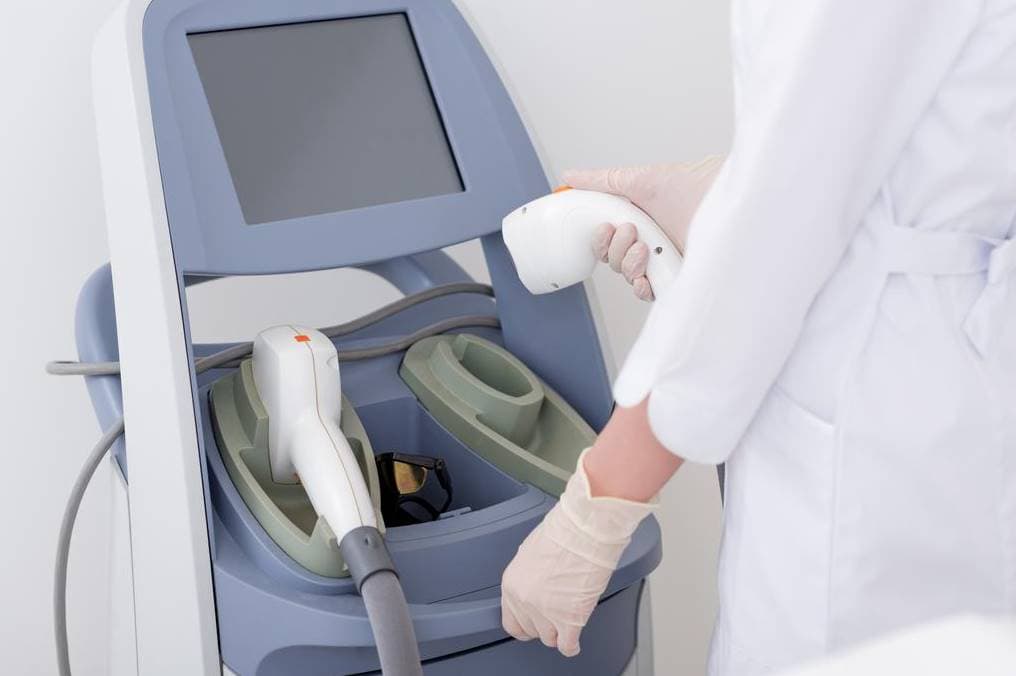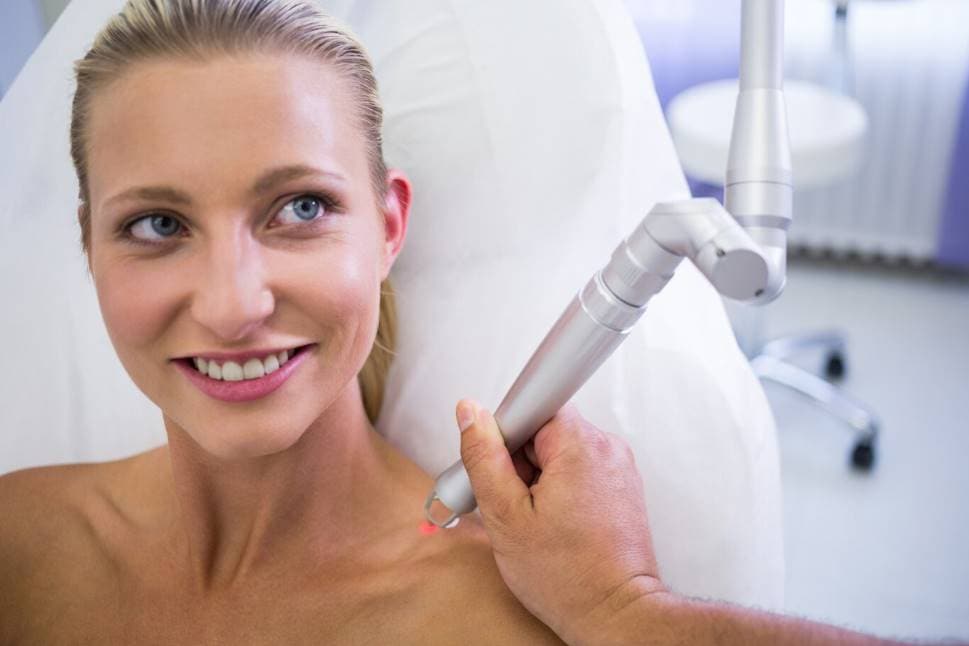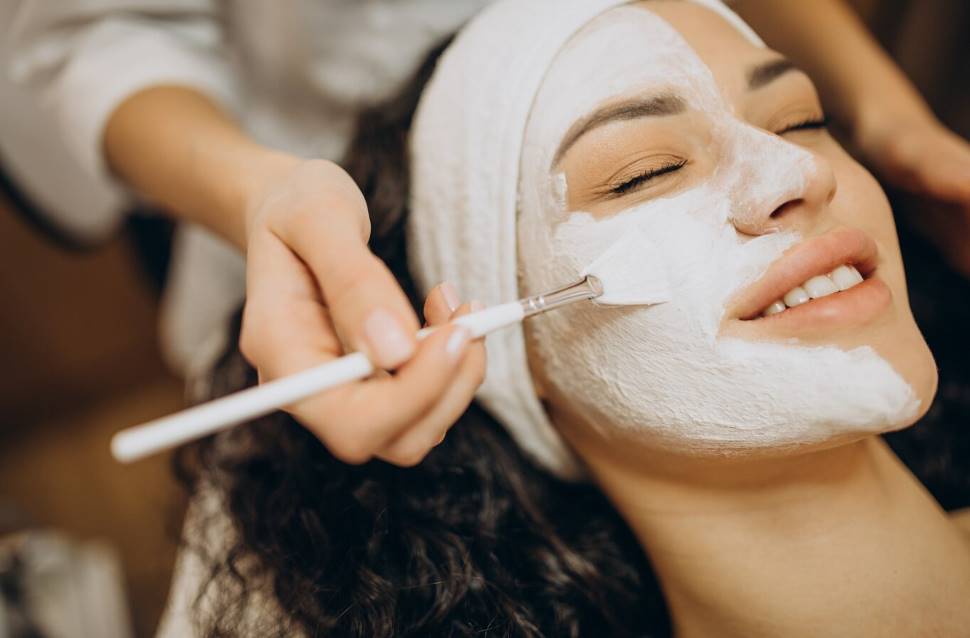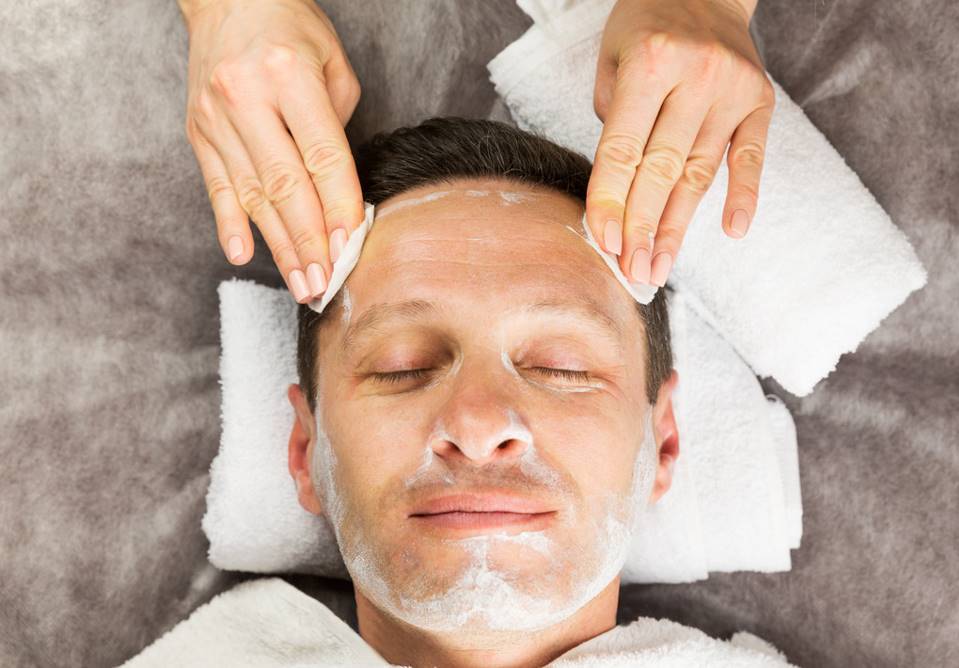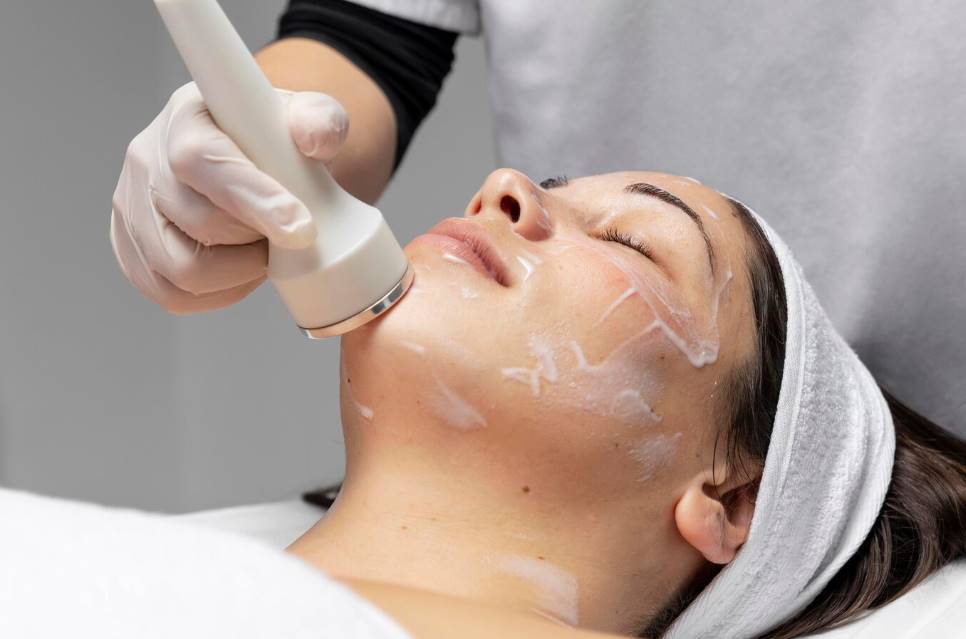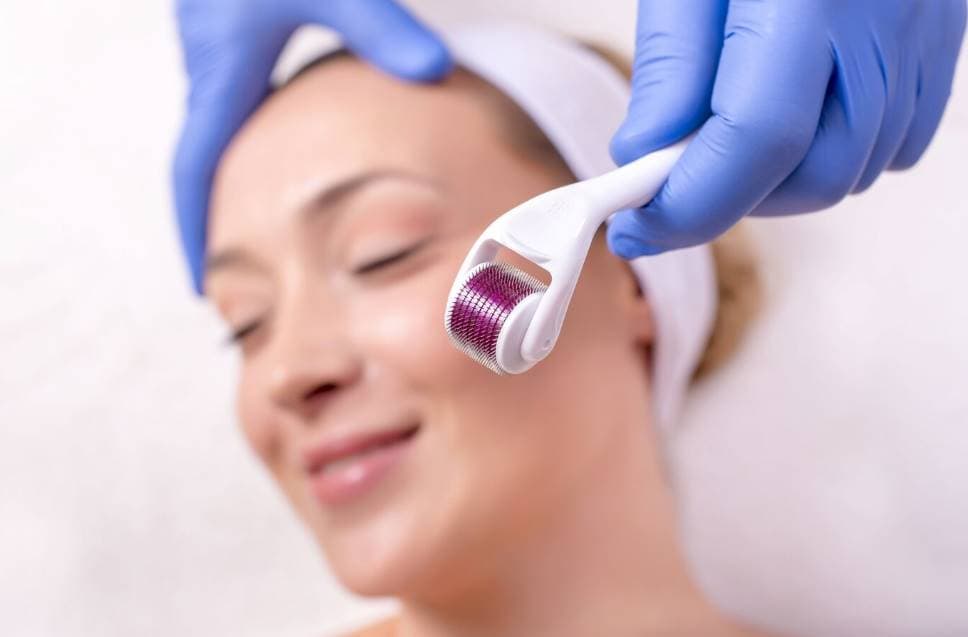The importance of a cosmetic dermatologist has never been higher in a society where emphasis is placed on appearance and self-perception. These trained experts improve our outward look and our inside feelings of worth and confidence. It is important to take your time when searching for a cosmetic dermatologist. It calls for introspection, study, and an in-depth familiarity with one's requirements and aspirations.
The goal of this guide is to help you choose the best cosmetic dermatologist for your needs by guiding you through the maze that is the field of cosmetic dermatology. To begin your road towards improved beauty and self-confidence, we will provide you with the knowledge and tools you need to comprehend the relevant certifications and credentials and discover the latest technologies and treatments. Now that you're interested in cosmetic dermatology let's explore the field and learn how to find a specialist who can help you feel and look your best.
What Is A Dermatologist?

A cosmetic dermatologist is a doctor who focuses on improving patients' aesthetics with non-invasive or minimally invasive techniques. They employ a wide range of methods to treat issues like poor skin texture, hair growth, premature ageing, and unsightly facial hair. Specialists in cosmetic dermatology are qualified to assess and treat hair, nails, and skin issues.
Treatments like cheek volume, dermal fillers, Botox injections, and laser therapy are also available to make patients look younger.
They consult extensively with patients to ascertain their goals and weigh those against the realities of the treatments on offer. A trustworthy cosmetic dermatologist will always be forthright when discussing each patient's best course of action. A cosmetic dermatologist differs from a plastic surgeon and should not be consulted for invasive operations like facelifts or breast enlargement. However, in circumstances where their services complement those of plastic surgeons, they may collaborate with such specialists.
Is There A Difference Between A Dermatologist And A Skin Specialist?
There is no other category of doctor that deals with skin diseases. This term is synonymous with "dermatologist." Both doctors and dermatologists are experts at identifying and treating skin conditions. The term "dermatologist" originates in dermatology, which is concerned with skin care. There is a lot of misunderstanding because of the term "skin care specialist." A person who advertises themselves as a "skin care specialist" is not a doctor. Skincare experts instead offer cosmetic services.
Dermatology Specialisations
Some dermatologists opt to focus their practice on a particular area of dermatology. While not essential, these specialists cater to particular patient populations or perform specialised dermatological treatment.
Dermatology is divided into three main subspecialties, which are:
- Dermatopathology – Dermatologists make microscopic diagnoses of skin disorders. In most cases, they will use high-powered electron microscopes to examine the findings of a biopsy, including scrapings of skin or tissue samples.
- Pediatric Dermatology – Pediatric dermatologists focus on treating children for specific skin problems due to their increased prevalence in youngsters.
- Mohs Surgery – Specialist dermatologists spend their days carrying out the operation that bears their name. Mohs surgery aims to remove microscopic layers of skin and examine them for cancer cells.
Reasons To Visit A Dermatologist
A Changed Mole Or Skin Patch
See a dermatologist if a mole or other piece of skin on your body has altered in size, colour, or appearance. These alterations are typical of skin cancer, and you should seek treatment as soon as possible if you suspect you have this disease. Learn how to conduct routine skin checks and screenings with the guidance of your dermatologist.
Stubborn Acne
You've tried OTC remedies, cleanses, and diets, yet your acne keeps making headlines. Getting professional help from a dermatologist is not something to be embarrassed of. Seek advice on how to present yourself favourably.
Rashes Or Itchy Hives That Won't Go Away
Is there something you're allergic to? Is there a skin infection present? Get to a dermatologist and find out what's going on. To help things along, they may suggest medicine or another treatment.
Scars Left By Cuts, Scrapes, Or Imperfections
A dermatologist can help you improve the appearance of your scar if it's making you feel self-conscious. Scarring can be minimised with the help of medical procedures like laser therapy, microdermabrasion, and others. Today's therapy choices remove any stigma associated with seeking help.
Recurrent Rashes On The Skin
You've tried over-the-counter remedies, but your skin is still red, itchy, and flaky. You might attribute your dry skin to environmental factors, sensitivity to skincare products, or even your genetic makeup. However, you may be suffering from a long-term skin disorder.
Hair Loss
Did you wake up to find more hair on your pillow than usual? Your hair loss could result from a scalp problem, or you could benefit from preventative treatments. Your dermatologist may suggest laser therapy or other treatments to maintain your youthful glow.
Services A Cosmetic Dermatologist Provides
Many of the services that cosmetic dermatologists provide are detailed on their websites. Some of the things they can do for you are listed below.
Injections Of Botox
Botulinum toxin, when injected subcutaneously, can reduce the appearance of wrinkles. The acetylcholine-induced facial muscle contractions are dampened. Since wrinkles are caused by the repeated contraction of the same muscles, blocking acetylcholine temporarily lowers their visibility.
Dermal Fillers
Injections called dermal fillers are also used to bring back the fullness of youth to the skin. Wrinkles, folds, and depressions on the face can be immediately smoothed out by injecting a material into the affected areas. Your doctor will be able to assist you determine which of the various fillers on the market will work best for you.
- Hyaluronic acid fillers
- Collagen wrinkle fillers
- Synthetic wrinkle fillers
- Autologous wrinkle fillers, i.e., fillers made from a patient's fat or blood
Treatments For Exfoliation
Several different methods can remove dead skin cells that accumulate on the skin's surface.
- When you physically exfoliate your face, you use an abrasive material to scrub away dead skin cells.
- Tiny crystals are sprayed into the skin in a microdermabrasion treatment, exfoliating the skin's middle layer.
- Chemical peels are an exfoliation that uses chemical, typically acidic, substances to remove dead skin.
- In addition to stimulating collagen formation, the light energy used in laser skin therapy acts as a mild exfoliant.
Intense Pulsed Light (Ipl) Therapy
Stimulating collagen formation in the skin is achieved by applying light beams of various filtered wavelengths. Sunspots, vascular spiders, wrinkles, moles, and expression lines are all treatable with IPL.
Hair Removal Using Laser
In order to prevent or slow down future hair growth, a focused laser beam is used in this treatment. Although laser hair removal significantly reduces the rate at which hair grows back, it is not a permanent solution.
Removal Of Tattoos
Most dermatologists today use lasers, which are much more effective and safer than older methods of tattoo removal, to erase unwanted body art.
Non-Invasive Fat Reduction
This method treats localised fat deposits that don't respond to diet and exercise. In order to permanently remove unwanted fat, the dermatologist will employ cold, ultrasonic waves, heat, or injections to kill the targeted fat cells.
Advice For Selecting The Ideal Surgeon To Enhance Your Appearance
You may do wonders for your self-esteem and your skin's health with the help of a skilled cosmetic dermatologist and the facilities of a first-rate clinic. Choose the dermatologist who makes you feel comfortable by following the advice in this article. The benefits of skincare go well beyond what can be seen on the surface. You can accomplish two major goals with the help of a well-informed strategy:
Quality: A skilled professional can advise you on which procedures will yield the desired outcomes.
Safety: On the other hand, a trained expert can guarantee your health and safety with the same level of expertise.
Factors To Take Into Account When Selecting A Dermatologist
Do Your Research
Doing your homework is crucial before visiting a cosmetic dermatologist. Asking for referrals from people you know who have had the same or comparable procedures done is a great place to begin your investigation. Once you have a shortlist of potential candidates, it's time to research their background and qualifications. Check out what others have said about them on review sites. Contact relevant professional organisations to verify board certification.
Learn all you can about them by reading press releases and news stories. You can learn about their standing in the industry and the respect they receive from their colleagues. Ask any questions that come to mind during in-person discussions with potential doctors. Enquire about their prior success with the operations you're interested in, and whether they have any before-and-after pictures you can look at. It is crucial to do some preliminary research to discover the cosmetic dermatologist who would best fulfil your needs and goals.
Schedule A Consultation
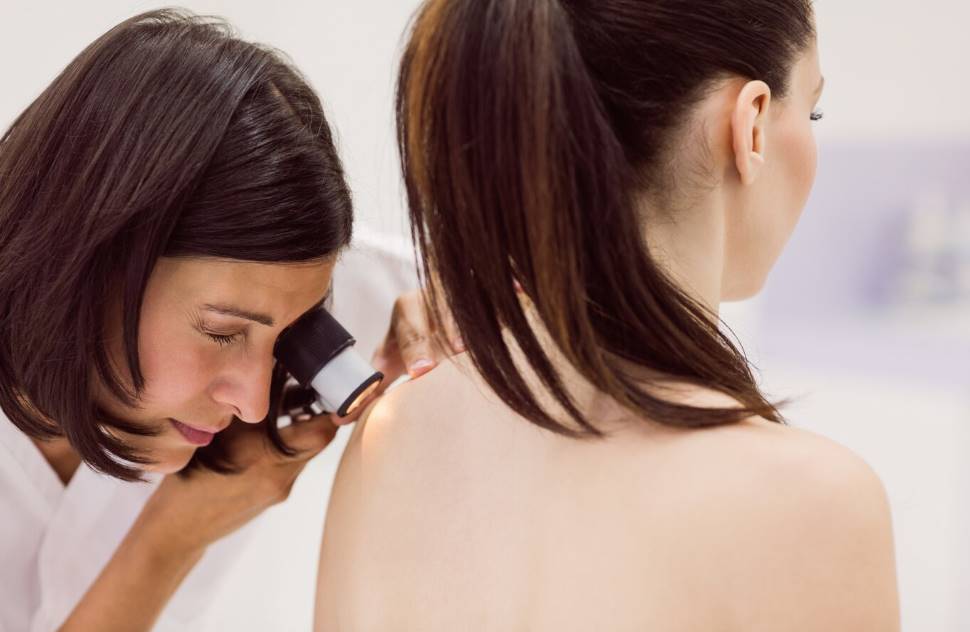
Consultations with cosmetic doctors might be scheduled after you've done some preliminary research. Having face-to-face time with the doctor to review your issues and learn more about their services is a crucial first step. Prepare questions and your medical history to discuss at the consultation. The dermatologist may also take photographs or examine your skin.
You should feel at ease with the dermatologist during your consultation. If something seems wrong or if they aren't responsive to your concerns, you may want to search elsewhere. Keep track of how long the appointment lasts and whether or not you feel rushed. A qualified cosmetic dermatologist will spend time getting to know you and will answer all of your queries.
When looking for a cosmetic dermatologist, scheduling a consultation first is important. Before beginning any treatment or process, both parties can gauge how well they get along.
Think About The Location
It's crucial to think about accessibility while choosing a cosmetic dermatologist. You should limit your trips away from home to medical-related ones. Locating a cosmetic dermatologist near your residence or place of business is preferable. Appointment setting will be significantly less of a hassle and take less time.
You may also want to be closer to home if you intend to get a more comprehensive operation requiring recuperation time. You may rest easy without having to venture too far from home.
In conclusion, finding a cosmetic dermatologist whose workplace is convenient for you is crucial. Try to locate a spot that requires little in the way of effort or time to reach.
Board Certification Matter
Choosing a cosmetic dermatologist who has completed the appropriate board examinations is essential. This verifies that the doctor has completed all required testing and is up to the American Board of Dermatology standards. Thanks to their extensive training in the sector, this ensures they are prepared to deal with any potential medical complications that may develop during treatments.
Furthermore, board-certified dermatologists are required to continue their education to maintain their certification. For individuals concerned about receiving subpar care, this can be reassuring news. Remember that not all cosmetic surgeons have completed further training in dermatology. Some may have additional credentials in fields like general practice or cosmetic surgery. Getting any other cosmetic treatment done on your chin should be done by a knowledgeable professional.
Additionally, selecting a dermatologist with board certification can aid in decreasing treatment-related problems and side effects. Specialists in this field know how different ingredients affect different skin types, allowing them to recommend the most effective therapies for their patients. Finding a cosmetic dermatologist who has passed the board certification process is crucial to your health and happiness.
Conclusion
A cosmetic dermatologist is a doctor who focuses on improving patients' aesthetics with non-invasive or minimally invasive techniques. They treat issues like poor skin texture, hair growth, premature ageing, and unsightly facial hair. Treatments include cheek volume, dermal fillers, Botox injections, and laser therapy. Dermatologists consult extensively with patients to determine their goals and weigh them against the realities of treatments.
Dermatology is divided into three main subspecialties: Dermatopathology, Pediatric Dermatology, and Mohs Surgery. These specialists focus on treating specific skin problems due to their increased prevalence in youngsters.
Reasons to visit a dermatologist include changed moles or skin patches, stubborn acne, rashes or itchy hives, scars left by cuts, scrapes, or imperfections, recurrent rashes on the skin, and hair loss.
Services provided by cosmetic dermatologists include Botox injections, dermal fillers, hyaluronic acid fillers, collagen wrinkle fillers, synthetic wrinkle fillers, and autologous wrinkle fillers.
In summary, choosing a cosmetic dermatologist involves introspection, study, and familiarity with one's requirements and aspirations. They can help improve beauty and self-confidence through various treatments, such as Botox injections, dermal fillers, hyaluronic acid fillers, collagen wrinkle fillers, synthetic wrinkle fillers, and autologous wrinkle fillers. By understanding the certifications, credentials, and latest technologies, patients can find the best dermatologist for their needs and achieve improved beauty and self-confidence.
Exfoliation treatments include physical exfoliation, microdermabrasion, chemical peels, laser skin therapy, Intense Pulsed Light (IPL), hair removal using laser, tattoo removal using laser, and non-invasive fat reduction. These treatments can help improve self-esteem and skin health by ensuring quality and safety.
When selecting a dermatologist, it is essential to do your research, schedule a consultation, consider the location, and choose a board-certified dermatologist. Researching potential candidates' backgrounds, qualifications, and board certifications can help you find the best fit for your needs and goals. Schedule a consultation with a qualified professional who will discuss your concerns and provide answers.
Location is also crucial when choosing a dermatologist. Finding a dermatologist near your residence or workplace is preferable as it is less of a hassle and takes less time. For more comprehensive procedures, consider finding a location closer to home.
Board certification is important as it verifies that the doctor has completed all required testing and is up to the American Board of Dermatology standards. Board-certified dermatologists are required to continue their education to maintain their certification, which can help reduce treatment-related problems and side effects.
In conclusion, selecting a cosmetic dermatologist with board certification is crucial for your health and happiness. They will be able to recommend the most effective therapies for your skin type and address any potential medical complications that may arise during treatments.
Content Summary
- The role of cosmetic dermatologists in modern society has grown due to the emphasis on appearance and self-perception.
- Cosmetic dermatologists enhance both our physical appearance and our internal feelings of self-worth.
- Selecting the right cosmetic dermatologist requires research, introspection, and understanding one's personal needs.
- This guide aims to navigate readers through the complexities of cosmetic dermatology.
- Knowledge about certifications, treatments, and technologies in the field is essential.
- Cosmetic dermatologists focus on non-invasive or minimally invasive aesthetic improvements.
- They address issues like skin texture, hair growth, premature ageing, and facial hair.
- Cosmetic dermatologists offer treatments like Botox, dermal fillers, and laser therapy.
- They should be forthright in discussing the best treatments for each individual.
- Cosmetic dermatologists and plastic surgeons differ; the former doesn't perform invasive surgeries.
- Dermatologists may collaborate with plastic surgeons when their services overlap.
- The term "dermatologist" and "skin specialist" are synonymous.
- Skin care specialists aren't doctors but provide cosmetic services.
- Some dermatologists specialise in specific areas for targeted treatments.
- Dermatology consists of subspecialties like Dermatopathology, Pediatric Dermatology, and Mohs Surgery.
- Dermatopathologists use microscopes to diagnose skin disorders.
- Pediatric dermatologists treat children's skin issues.
- Mohs surgery is a method to remove and examine skin layers for cancer cells.
- A change in a mole or skin patch could be a sign of skin cancer.
- Visiting a dermatologist is recommended for persistent acne issues.
- Rashes or itchy hives warrant a dermatologist's assessment.
- Dermatologists can offer treatments for scarring.
- Recurrent rashes may suggest a long-term skin disorder.
- Hair loss might be treatable by a dermatologist through various treatments.
- Cosmetic dermatologists provide services such as Botox injections.
- Botox reduces wrinkles by dampening facial muscle contractions.
- Dermal fillers restore skin's youthful fullness and smooth out facial imperfections.
- Various types of fillers are available including hyaluronic acid and collagen fillers.
- Exfoliation treatments can be physical or chemical.
- Microdermabrasion sprays tiny crystals into the skin for exfoliation.
- Chemical peels use acidic substances to exfoliate dead skin.
- Laser skin therapy stimulates collagen and acts as an exfoliant.
- Intense Pulsed Light (IPL) therapy treats various skin issues like sunspots and wrinkles.
- Laser hair removal offers a semi-permanent solution to hair growth.
- Modern tattoo removal predominantly uses lasers.
- Non-invasive fat reduction targets stubborn fat deposits.
- A proficient cosmetic dermatologist can enhance one's self-esteem and skin health.
- Skincare benefits extend beyond surface-level improvements.
- Quality and safety are two pivotal objectives in cosmetic dermatology.
- Before choosing a dermatologist, it's vital to conduct thorough research.
- Referrals and reviews can offer insights into a dermatologist's reputation.
- Reading about potential dermatologists can reveal their industry standing.
- Initial consultations with dermatologists are essential to discuss concerns and gauge compatibility.
- It's crucial to feel comfortable with the dermatologist and not rushed during the consultation.
- The dermatologist should be open to answering all questions.
- Scheduling a consultation is a recommended first step in the selection process.
- It's essential to prepare questions and one's medical history for the consultation.
- In-person meetings can provide a clearer understanding of a dermatologist's approach.
- Dermatologists should prioritise getting to know their patients.
- If something feels off during a consultation, it might be best to explore other options.
Frequently Asked Questions
The field of dermatology is divided into two branches – medical and cosmetic. Cosmetic dermatology caters to patients looking to maintain their youthful appearance by reversing the signs of aging or wanting to make aesthetic changes or improvements to their skin.
Dermatology is an area of medicine that focuses on medical conditions affecting the skin. Cosmetic dermatology – or aesthetic medicine – is a subspecialty within dermatology that helps patients improve their skin, hair, and nails for cosmetic (aesthetic) purposes rather than health reasons.
Skincare specialists provide beauty treatments related to skin, hair and nails. A dermatologist is a more medical formal term used for a skin specialist. A Dermatologist not only takes care of the skin but also looks into the problems and diseases of the scalp, hair and nails.
Many live with acne for years while trying to manage it alone, often without success. A dermatologist can treat resistant acne with a customized treatment plan. With the help of our board-certified doctors, you can finally see clear skin and stop feeling self-conscious about your breakouts.
You can also have these spots gently removed by a board-certified dermatologist with a laser or cautery.
